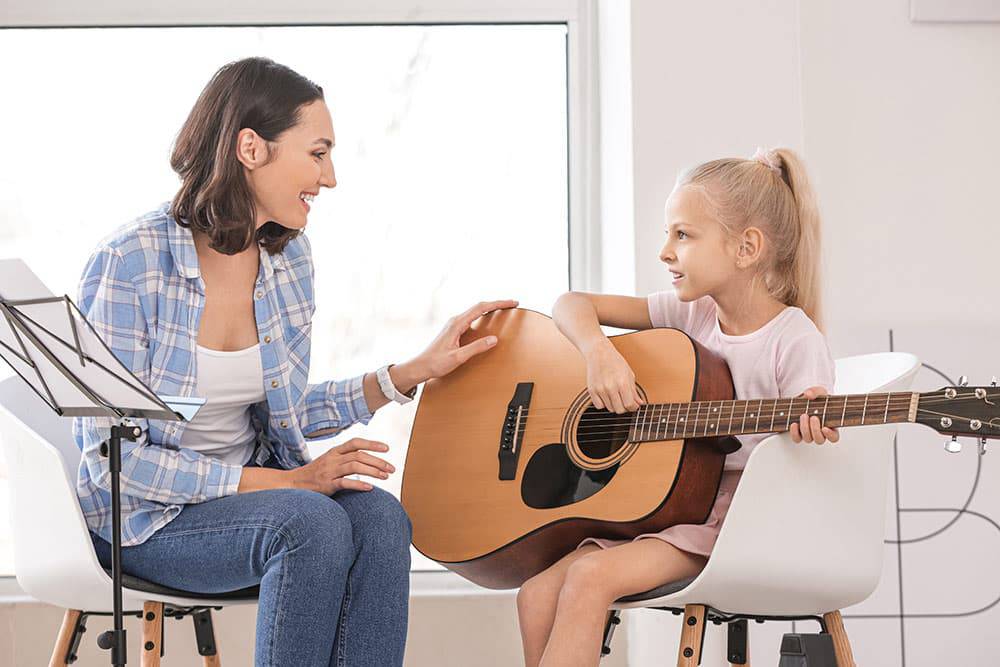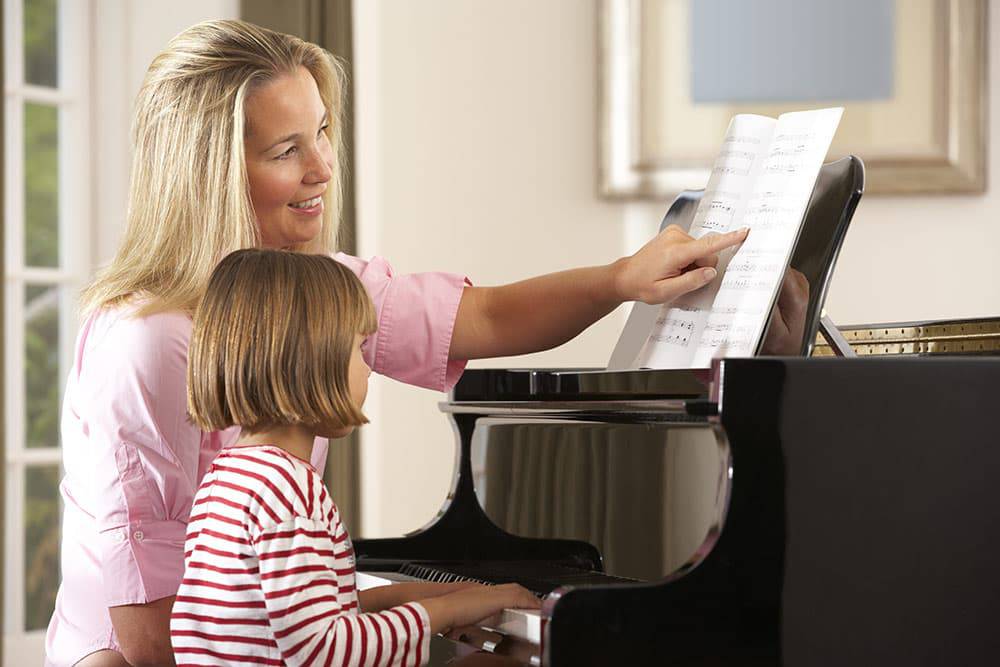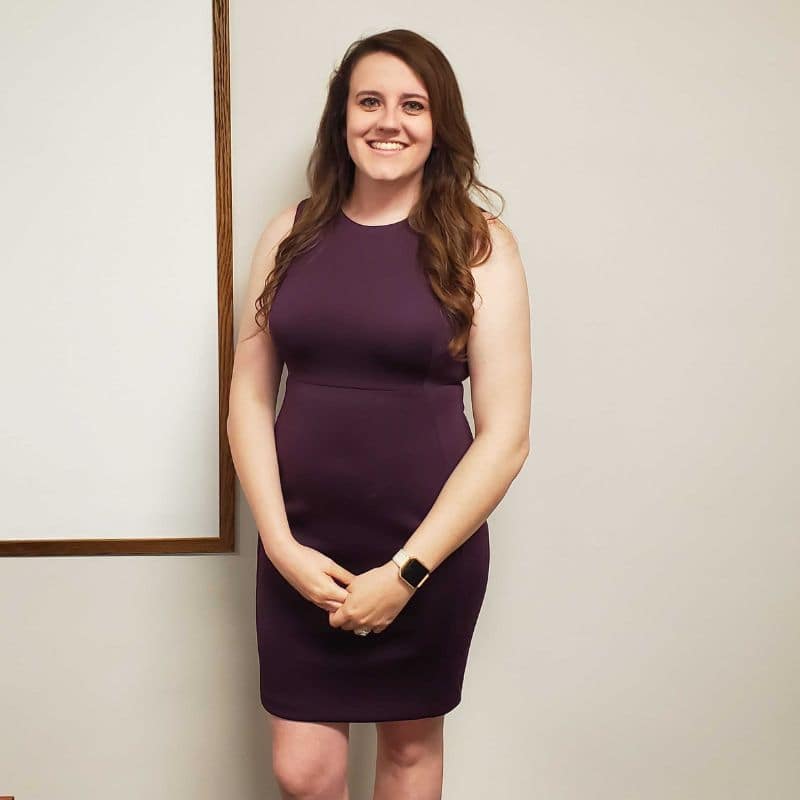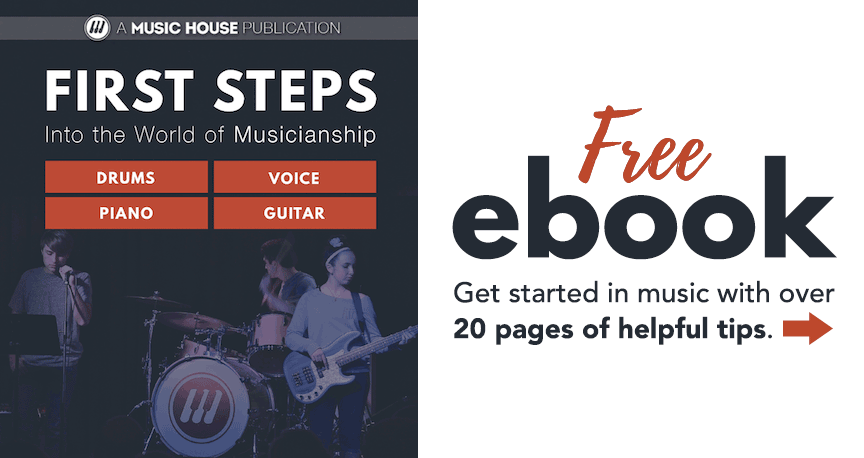6 Tips to Get The Most Out of Your Private Music Lessons

How to get the most out of private music lessons? It might seem obvious at first – just do what your teacher tells you, and you'll improve. However, that isn't all there is to it. A student's job is to maintain dedication and work on the correct material in a way that will help to achieve goals. Staying on the right track will make you a better musician. You'll also get all your money's worth from your private music lessons!
There are a few important recommendations for musicians of all instrument types and across all different skill levels. These tips will help you get the most out of your private music lessons.
1. Set Goals
Before beginning private music lessons, you should already have an idea of what you're looking to achieve. Perhaps you desire to play some chords to a few songs. Or maybe you want to improve on your favorite song. Or you might want to start your own band. Whichever the case might be, you should have an inkling of what you'd like to get from private music lessons. That way, you and your teacher can be on the same page.
After setting your goals, feel free to adjust them or add to them. For example, after you realize how fun it is to play a note-for-note rendition of your favorite solo, you might want to learn something else. On the other hand, you might feel that you've accomplished what you set out to do and don't feel the need to continue with private music lessons. It's fine either way – the final choice always rests with you. Just be sure to take everything into consideration before making your decision.
2. Practice Makes Perfect
This is an obvious point, but one that is all too often ignored by music students of all age groups. The bottom line is that if you don't have the time to practice, you likely won't have time to improve. If this is the case, then you might want to think again about what your goals are. If you're taking private music lessons to destress and have someone else to play along with, then this might be ok. On the other hand, if you've set a skill-related goal, you'll have to put in the time to maximize the value from your lessons.
3. Budget Your Time
Of course, you must practice, but it's also important to have fun and play some music. That's what it's all about, isn't it? Having fun?
Particularly when first starting out, it can be difficult to see how it will fit in your life. But if you really are serious about it, you'll have to be able to find the time. For example, with kids, video games can be a powerful draw. So if your child plays video games, ask them if they want to play their instrument as much as they want to play games. If their answer is yes, then tell them that they'll have to put the games down for 30 minutes a day to practice their instrument. On the other hand, if their answer is no, they probably won't get much out of private music lessons.
If you're an adult and trying to find time to practice, a simple shift in your habits might be all that it takes. Perhaps there are some things you could move around in your schedule. For example, ask yourself what you do right away when coming home from work. Do you rise early and have extra time in the morning? Those small little decisions that you make every day can add up a lot. But, after you begin to make progress and start having fun, your instrument will become a natural and fun part of your lifestyle.

4. Choose the Right Teacher
If your teacher can't tell you why they want to teach you something that you don't enjoy, you should ask yourself if that teacher is right for you. Chances are that they aren't. Don't hesitate to find another teacher if your personality doesn't click with theirs.
It can be particularly useful when starting out to get lessons from a couple of different teachers to see who you enjoy learning from more. After all, every teacher's style and approach will differ. However, if you're crystal clear about your goals, you can find the best teacher who will be prepared to help you achieve them.
5. Pay Attention to Your Teacher
If the teacher says that you should learn something new, just give it a chance. Don't dismiss a suggestion out of hand just because you don't enjoy the song or piece. There's likely a reason that your teacher selected it specifically. Perhaps it is similar to a skill that you must master to achieve your goals. Trust is the key. As long as you trust your teacher and follow their instructions. And besides, you can always ask them why they told you to do it. They likely have an answer.
6. Play With Others
This is an essential piece of advice. Regardless of the amount of time you put into practicing what you learn from lessons, you'll eventually lose it if you don't put it to practical use.
The primary way to get the most out of private music lessons is to play with others (not only your teacher). It could even be a family member or friend who also plays an instrument. You could also look into an open mic type gig with people who enjoy the same kind of music that you do. If you aren't sure, discuss it with your teacher – chances are that they work with another student at a similar level as you. The teacher could put you in touch with them so that you could grow together.
If you aren't confident yet about performing in public, or if you're too afraid to venture beyond your comfort zone in the beginning, then don't feel bad. Just think of it as a study group and work with fellow musicians in private before going out to a public jam. You'll become a much better musician that way. Also, every time you work with a new partner, you'll see a big improvement!

